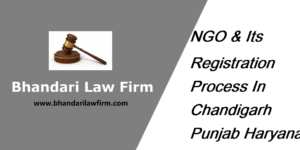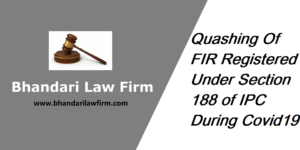Kinds of Marriages Under Hindu Marriage Act 1955
Introduction: India, being a cosmopolitan country, allows each citizen to be governed under personal laws relevant to religious views. This extends to personal laws inter alia in the matter of marriage and divorce Kinds of Marriages Under Hindu Marriage Act 1955
As part of the Hindu Code Bill, the Hindu Marriage Act was enacted by Parliament in 1955 to amend and to codify marriage law between Hindus. As well as regulating the institution of marriage (including validity of marriage and conditions for invalidity), it also regulates other aspects of personal life among Hindus and the applicabilityof such lives in wider Indian society. Kinds of Marriages Under Hindu Marriage Act 1955
The Hindu Marriage Act provides guidance for Hindus to be in a systematic marriage bond. It gives meaning to marriage, cohabiting rights for both the bride and groom, and a safety for their family and children so that they do not suffer from their parental issues. Kinds of Marriages Under Hindu Marriage Act 1955
Hindu Marriage refers to kayadanda which means gifting a girl to the boy by the father with all the tradition and rites or custom. Hindu marriage is an ancient tradition which is prevailing from the Vedic periods to the modern world with different modifications that have occurred until now. There are 16 sacraments in the Shastri Hinduism in which marriage is one of the important sacraments of Hinduism. Kinds of Marriages Under Hindu Marriage Act 1955
Applicability
The Act applies to all forms of Hinduism (for example, to a person who is a Virashaiva, a Lingayat or a follower of the Brahmo, Prarthana or AryaSamam) and also recognises offshoots of the Hindu religion as specified in Article 44 of the Indian Constitution. Notably, these include Jains and Buddhists. The Act also applies to anyone who is a permanent resident in the India who is not Muslim, Jew, Christian, or Parsi by religion.
Although the Act originally applied to Sikhs as well, the AnandKarj Marriage Act gives Sikhs their own personal law related to marriage. Kinds of Marriages Under Hindu Marriage Act 1955
Although the Act originally did not apply to citizens in the State of Jammu and Kashmir, the effect of the J&K Hindu Marriage Act, 1955 made it applicable.
Who are Hindus?
Hindu by Religion
The Medieval period of Hinduism lasted from 500 to 1500 AD. Hinduism is the oldest religion which contains a wide range of tradition and culture which are followed by all the Hindus across the globe. Any person who is a Hindu by religion or born in Hindu family with Hindu father or mother in any of its forms such as Virashaiva, a Lingayat or a follower of the Brahmo, Prarthana or Arya Samaj or any person who is a Buddhist, Jain, or Sikh is also a Hindu by religion. Thus, any person except a follower of Muslim, Christan, Parsi, or Jew religion is a Hindu.
Hindu by Birth
Any person born in a Hindu family or has a Hindu father or mother such a person is considered as Hindu by birth. Any person born in any community apart from Muslim, Christian, Jews is also a Hindu. Any child, legitimate or illegitimate if either of his parents is Hindu, if he is brought up by the parent who is Hindu shall be considered as Hindu by birth.
Conditions for validity of a Hindu Marriage
Section 5A valid marriage shall be solemnized between two Hindus if the following conditions are fulfilled:
- Any person doesn’t have a spouse living at the time of the marriage. According to the Hindu Marriage Act, it is not permissible to have two living wives at the same point in time, which amounts to bigamy. It is punishable under Section 494 of the Indian Penal Code.
- The groom shall attain the age of 21 and the bride attains the age of 18. It is necessary at the time of marriage the person shall attain the specified age given in this Act.
- The consent shall not be given by coercion or threat. In the modern world, a father can’t get the girl married to any without a girl’s consent. Marriage will be void.
- They don’t fall under the Sapinda relationship, or within the degree of prohibited relationship unless it is allowed by their custom or tradition.
- The person shall be not suffering from any insanity or mental disorder at the time of the marriage.
Essential elements of Section 5 of Hindu Marriage Act
Condition of monogamy
Section 5 (i) of the Hindu marriage act 1955 states that at the time of the marriage a person should not have a living spouse. It is not permissible in Shastri law to have two married women at a point in time. It is also punishable under the Indian penal code 1955.
Bigamy
Bigamy amounts to having two living wives at the same time which is illegal in Hindu law; without finalizing the divorce from the first marriage, a person can’t marry someone else. The first one will be considered a legal marriage. The provision of section 494 and 495 of the Indian Penal Code 1860 will be applicable to the person performing the second marriage after already having a living husband and wife.
(Click Here To Know About Maintenance of Wife, Children and Parents)
Conditions regarding mental health or capacity
Section 5 (ii) (a),(b),(c) Hindu marriage Act 1955 discusses the condition of valid of Hindu marriage related to mental health or capacity of the person; if a person is suffering from unsoundness of mind at the time of marriage, Marriage will be considered as void. It is necessary that a person shall be capable of giving valid consent at the time of the marriage.
Age completion
Section 5 (iii) of the Hindu Marriage Act 1955 states that the bridegroom has completed the age of twenty-one and the bride has completed the age of eighteen years at the time of the marriage. If the person has not attained given in section 5 (iii) the marriage will be void it has no legal status.
Sapinda relationship
All prohibited relationships are Sapinda but all Sapinda relationships are not prohibited relationships. Sapinda relationship is the chain of all the relationship from the side of the brother and sister in the family; they can’t marry each other due to prohibited relationship and also their generation till three generations from the girl side and five-generation from the boy side, till that they all are in Sapinda relationship. Avoidance of Sapinda can be achieved as the girl reaches the fourth generation and boy (brother) reaches the sixth generation after that both families can have a marriage that will be neither prohibited relationship nor Sapinda relationship.
Ceremonies under Hindu Marriage Act 1955
Marriage among Hindus being a religious and sacred tie, performance of certain ceremonies is still necessary for a valid marriage. There were three important stages wherein certain ceremonies were to be performed. They were:
1. Betrothal or Saga: it is a formal promise to give the girl in marriage.
2. Kanyadan: It is actual giving away of the girl in marriage by her father.
3. Saptapadi: it consisted in performing a ceremony of taking seven steps before the sacred fire by the bride and the groom. The performance of Saptapadi marked the completion of a marriage. It made the marriage irrevocable.
As per Section 7, a marriage is a ceremonial affair. Saptapadi is an essential part of the ceremonies of marriage, its non performance will invalidate the marriage. The performance of vedic rights is not enough to solemnise the marriage.
Solemnisation of marriage (Section 7)
In connection with marriage the word ‘Solemnise’ means to celebrate marriage with proper ceremonies and in due form. Unless the marriage is celebrated or performed with proper ceremonies and in the due form, it cannot be said to be solemnised.
Section 7 provides that (i) A Hindu marriage may be solemnised in accordance with the customary rites and ceremonies of either party thereto. (ii) where such rites and ceremonies include the saptapadi, the marriage becomes complete and binding when the seventh step is taken.
Section 7 provides two kinds of ceremonies (i) Customary Ceremonies and (ii) Shastric Ceremonies.
Registration of Marriage (Section 8)
Section 8(1) of Hindu Marriage Act provides that for the purpose of facilitating the proof of Hindu marriages, the state government may make rules providing that the parties to any such marriage may have the particulars relating to their marriage entered on such manner and subject to such conditions, as may be prescribed in a Hindi Marriage Register kept for the purpose.
Difference between void and voidable marriage
| Void Marriage | Voidable Marriage |
|
A marriage which is void ab initio is a total nullity. A marriage is non-existent in such a case and does not affect or alter the status of the parties. Moreover, it does not create any rights and obligations of the parties, which normally result from a valid marriage. |
A voidable marriage remains valid and binding till avoided. It is and continues to be valid marriage for all the purposes till a decree annulling it is passed under Section 12. |
|
Parties to a void marriage are criminally liable. |
No penalty is laid down for a voidable marriage. |
|
A void marriage is void ab initio and it can be held to be so without a formal declaration by a court under Section 11. |
While for a voidable marriage, to put an end to it, annulment is necessary. |
|
Section 11 applies to a void marriage only contracted after the commencement of the Act. |
Section 12 applies to marriages contracted before or after the commencement of the Act. |
|
In case of Section 11 the Act itself declares a marriage to be null and void without any action on the part of any spouse. Of course, nobody can stop a spouse from getting a declaration of nullity for the purpose of precaution and for the record. Children born out of void and voidable marriages are legitimate (Section 16). |
The remedy available under Section 12 is an optional remedy, i.e., the party concerned has to take the aid of a court for an annulment decree. |
|
It is not necessary that a decree declaring a void marriage as void is passed. The parties to a void marriage may perform another marriage without getting a decree declaring their marriage as void and neither will be guilty of bigamy. |
But a voidable marriage will remain a valid marriage till a decree annulling it is passed. |
Note: For any further information or any query you may contact us on 9855677966 or via email info@bhandarilawfirm.com



